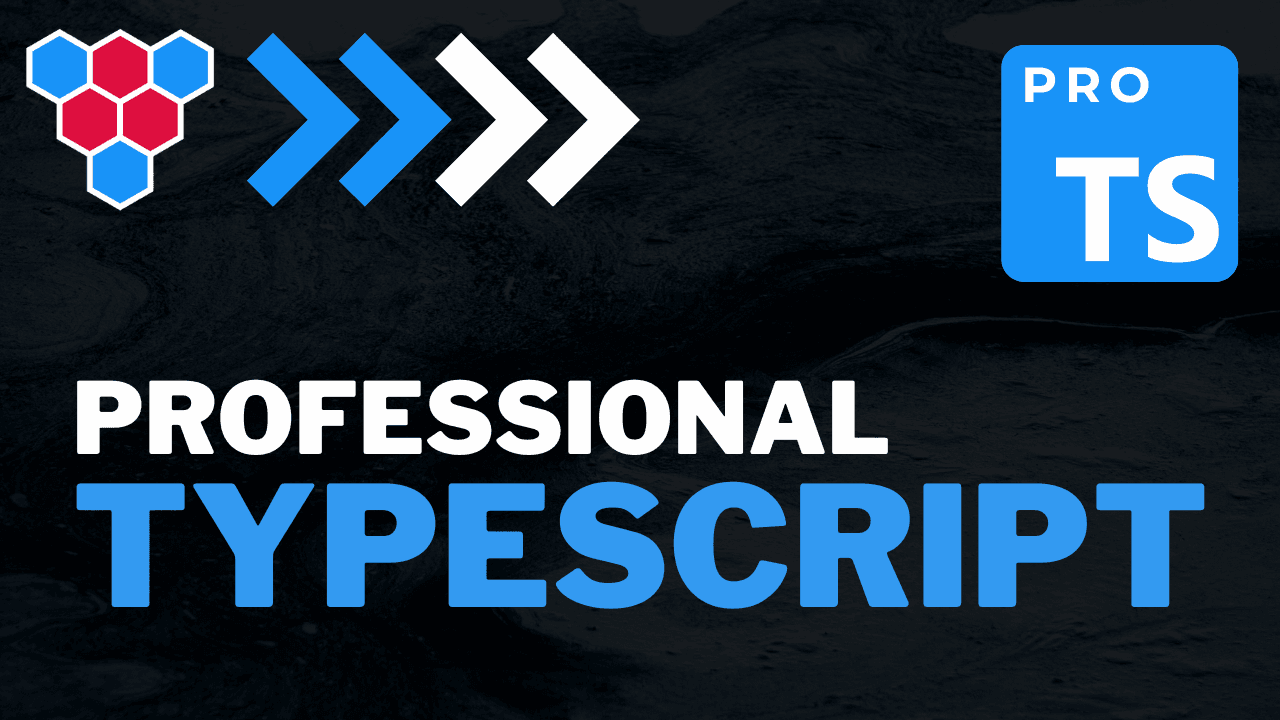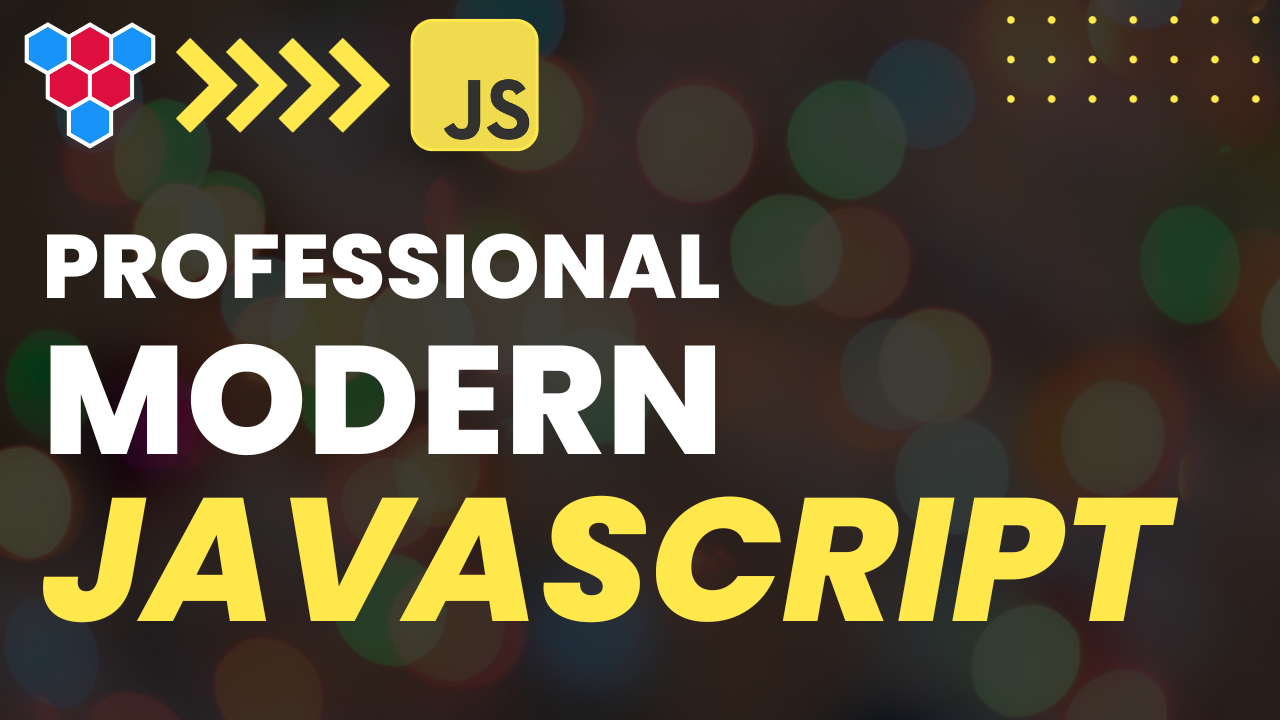
Welcome to Professional TypeScript
Supercharge your JavaScript knowledge. Learn the beauty of TypeScript, and how you can apply it to real world code without thinking that its magic ✨
Why TypeScript
Nowadays its pretty hard to find a new job working with JavaScript if you don't have a basic understanding of TypeScript. Beyond that, TypeScript is now powerful enough to be a programming language in its own right (independent of JavaScript). This course is designed to teach you modern TypeScript from the beginning so you can use it effectively in your day to day.
But we don't stop there, we cover lots of advanced TypeScript concepts, without slowing you down, so you can quickly get up to speed, and continue to use this as a reference well into your career.
Learning Objectives
- Effectively use TypeScript at your day to day job
- Learn the basics on TypeScript
- Master advanced TypeScript concepts to use it as a type programming language
- Real world use cases of various TypeScript features
- Stay up to date with modern TypeScript concepts
Prerequisites
Basic knowledge of computers and some beginner level programming knowledge. Knowledge of JavaScript will be extremely helpful but don't worry, you can view our JavaScript course to brush up (and probably learn new things).
Why This Course
If you are looking to master TypeScript, this course is for you. This course will quickly get you up to speed to use it effectively at your workplace and even impress your colleagues 😉.
I'm a Microsoft MVP (Most Valuable Professional) for JavaScript / TypeScript, thanks to my teaching contributions in the form of books, various videos and answers on StackOverflow.
I've been teaching TypeScript for a long time, writing and reviewing various books, making video courses. I use that knowledge to share those experiences with you. Unlike some other creators, you will not find mixed messages (flavour of the day) here. You get clear answers, informed with years of research and exposure.
You will go from the basic annotations, for example : string:
To all the way to using TypeScript as a type programming language. As an example, when you are done with this course the following piece of code will feel simple :
A lot of effort has gone into this course to make sure you get all the knowledge you need as quickly as possible. No time wasting here. You will learn quickly and be on your way, building great things 🎄
LESSONS
Introduction
(⏱️ 1:54)
Setup
(⏱️ 5:44)
Primitive Types
(⏱️ 1:42)
Instance Types
(⏱️ 1:52)
Arrays And Tuples
(⏱️ 1:38)
Objects
(⏱️ 1:33)
const declarations
(⏱️ 1:03)
Function Types
(⏱️ 1:57)
Structural Typing
(⏱️ 2:10)
Classes in TypeScript
(⏱️ 1:48)
Target Compiler Option
(⏱️ 2:37)
Generics
(⏱️ 3:02)
Special Types any And unknown
(⏱️ 2:00)
JavaScript to TypeScript
(⏱️ 1:32)
Frontend Projects
(⏱️ 3:49)
Type Assertions
(⏱️ 2:15)
Type Casting
(⏱️ 1:16)
Modules
(⏱️ 1:55)
Type Declarations
(⏱️ 4:25)
Creating NPM packages
(⏱️ 3:20)
Async Await
(⏱️ 3:05)
Running in NodeJS
(⏱️ 1:40)
Lexical this
(⏱️ 2:34)
readonly Modifier
(⏱️ 1:59)
Union Types
(⏱️ 2:57)
Literal Types
(⏱️ 2:58)
Type Narrowing
(⏱️ 4:19)
Discriminated Unions
(⏱️ 3:29)
Class Parameter Properties
(⏱️ 1:02)
Strict Compiler Option
(⏱️ 6:18)
null vs undefined
(⏱️ 4:19)
Intersection Types
(⏱️ 2:03)
Optional Modifier
(⏱️ 2:47)
Non Null Assertion Operator
(⏱️ 3:40)
Interfaces
(⏱️ 2:28)
Interface Declaration Merging
(⏱️ 1:01)
Types vs Interfaces
(⏱️ 2:16)
never Type
(⏱️ 3:00)
implements Keyword
(⏱️ 1:25)
Definite Assignment Assertion
(⏱️ 2:31)
User Defined Type Guards
(⏱️ 2:02)
Assertion Functions
(⏱️ 3:42)
Function Overloading
(⏱️ 4:15)
Call Signatures
(⏱️ 2:53)
Abstract Classes
(⏱️ 1:53)
Index Signatures
(⏱️ 3:08)
Readonly Arrays and Tuples
(⏱️ 2:58)
Double Assertions
(⏱️ 2:20)
const Assertions
(⏱️ 3:55)
this Parameter
(⏱️ 2:33)
Generic Constraints
(⏱️ 2:43)
Dealing With Temporal Uncertainty
(⏱️ 2:58)
typeof Type Operator
(⏱️ 2:12)
Lookup Types
(⏱️ 3:12)
keyof Type Operator
(⏱️ 3:55)
Conditional Types
(⏱️ 4:39)
Contitional Types with Unions and never
(⏱️ 3:32)
infer Keyword and `ReturnType<T>`
(⏱️ 3:47)
Mapped Types
(⏱️ 2:48)
Mapped Type Modifiers
(⏱️ 3:37)
Template Literal Type
(⏱️ 4:28)
Partial<T>
(⏱️ 1:27)
Required<T>
(⏱️ 1:36)
Readonly<T>
(⏱️ 1:34)
Record<K, T>
(⏱️ 4:05)
Project References
(⏱️ 4:18)
undefined vs. optional
(⏱️ 2:48)
satisfies Operator
(⏱️ 2:42)
PropertyKey Type
(⏱️ 0:57)
ThisType<T>
(⏱️ 4:11)
Awaited<T>
(⏱️ 4:12)
String Manipulation Types
(⏱️ 3:36)
Mapped Types as Clauses
(⏱️ 4:01)
Union vs Intersection Mental Model
(⏱️ 3:36)
Enums are Bad
(⏱️ 8:11)



